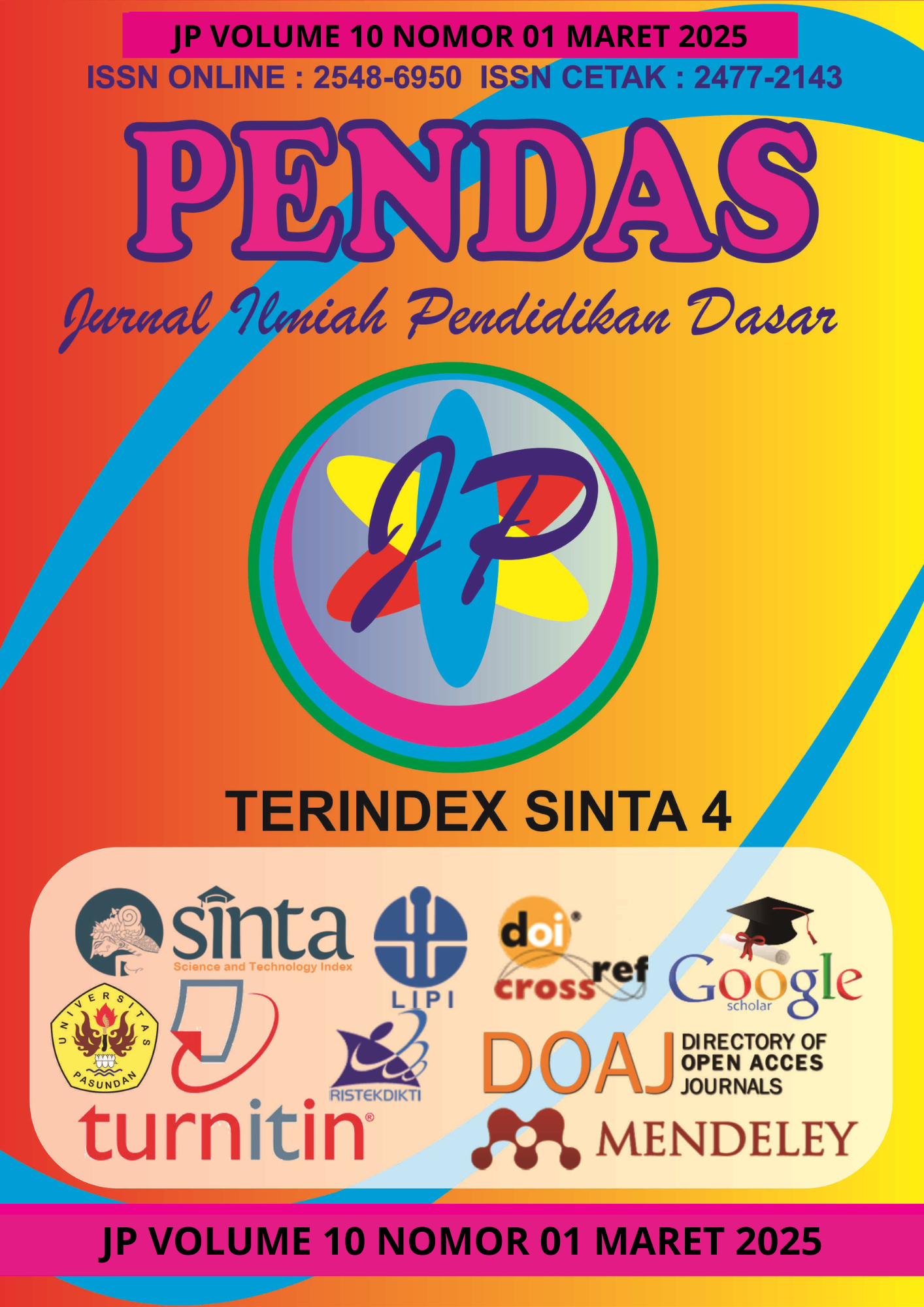BELAJAR DAN PEMBELAJARAN PAI
DOI:
https://doi.org/10.23969/jp.v10i01.23589Keywords:
Islamic Religious Education, Learning, TeachingAbstract
The learning process of Islamic Religious Education (PAI) is not only focused on cognitive understanding but also includes affective and psychomotor aspects to ensure that students can apply Islamic teachings in their daily lives. The primary goal of PAI learning is to instill faith and piety, shape noble character, and equip students with worship skills and a comprehensive understanding of Islam. Several factors influence the effectiveness of PAI learning, including the role of teachers, student characteristics, and supporting facilities. Teachers serve as educators and mentors who not only transfer knowledge but also act as role models in religious life. Moreover, innovative teaching strategies and methods are required to create an engaging and meaningful learning environment. Evaluation in PAI learning is a crucial aspect in assessing students’ success in understanding, internalizing, and practicing Islamic teachings through various methods such as written tests, observations, and direct worship practices. Therefore, effective PAI learning requires synergy between teachers, students, the learning environment, as well as the appropriate use of teaching methods and evaluation. The success of Islamic religious education is not only measured by academic comprehension but also by how well students internalize and practice Islamic values in their daily lives.
Downloads
References
Buna’i. (2021). Perencanaan Dan Strategi Pembelajaran Pendidikan Agama Islam. Surabaya: CV. Jakad Media Publishing.
Mindani. (2022). Evaluasi Pembelajaran PAI. Bengkulu: Elmarkazi.
Tafonao, T. (2018). "Peranan Media Pembelajaran Dalam Meningkatkan Minat Belajar Mahasiswa." Jurnal Komunikasi Pendidikan, 2(2), 103.
Wahyudi, T. (2023). "Membangun Strategi Pembelajaran Pendidikan Agama Islam Era Revolusi Industri 4.0 Dan Society 5.0." Al-Mutharahah: Jurnal Penelitian dan Kajian Sosial Keagamaan, 20(1), 148–159.
amruni, H. (2015). "Konsep Dasar Dan Implementasi Pembelajaran Kontekstual." Jurnal Pendidikan Agama Islam, 12(2), 177–187.
Harahap, E. (2023). "Menggali Prinsip-Prinsip Dan Model Pembelajaran Pendidikan Agama Islam Yang Transformatif." Al-Murabbi: Jurnal Pendidikan Islam, 1(1), 113–127.
Downloads
Published
Issue
Section
License
Copyright (c) 2025 Pendas : Jurnal Ilmiah Pendidikan Dasar

This work is licensed under a Creative Commons Attribution 4.0 International License.














































